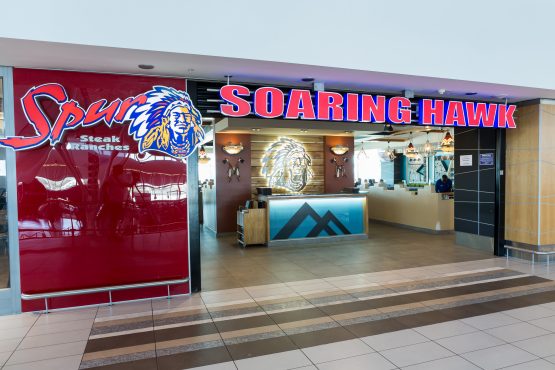Spur reports 119% surge in H1 profit, edging closer to pre-pandemic levels

JSE-listed company Spur Corporations posted a 119.3% gain in profit for the six months ended December 31 2021 amid improving trading conditions and increased foot traffic to restaurants.
The group reported headline earnings per share of 70.10 cents for the period, which were supported by improved restaurant sales.
“Following the reduction in lockdown levels and easing of trading restrictions, customer counts in restaurants improved from August to December 2021, with strong trading in the fourth quarter of calendar 2021. As a result, the group’s performance continued to recover in the first half of F2022,” it says.
Franchise restaurant sales grew by 28.3% to R3.7 billion for the period, led mainly by the Spur brand which saw a 32.6% increase in sales for the six-month period
The group which owns casual dining brands RocoMamas, Panarottis and Spur Steak Ranches, says it managed to increase group revenue by 40.3% for the period, to R440.7 million.
This was boosted by better turnover performance in its franchise business, increased sales in company-owned restaurants and increased sales from its manufacturing and distribution segments.
However, despite seeing a strong recovery in the period, performance at its restaurants still lags behind pre-pandemic levels.
“While there is still uncertainty on the continued effects of the Covid-19 pandemic, the group demonstrated a pleasing recovery in trading performance,” Spur CEO Val Nichas says in a statement.
“However, group franchised restaurant turnover for the half-year remains 9.5% behind pre Covid-19 levels.”
The group will reward shareholders with a 49 cents per share interim dividend.
Changing consumer behaviour
For almost two years, the restaurant sector has had to stomach a bitter pill as strict Covid-19 lockdown restrictions created a tough trading environment that imposed rules on customer numbers, trading hours and intermittently prohibited alcohol sales.
Despite this, Spur says it has spotted growth opportunities in healthier food options and alternative trading channels – like home delivery services – as more consumers take their health seriously, seek convenience and want to avoid crowds.
To capitalise on the change in consumer eating habits, the group opened a plant-based quick-service restaurant in Rosebank, Gauteng called Modrockers. The restaurant, which is currently in its fourth month of its pilot phase, is largely positioned to cater for a youthful target market.
“The widespread changes in the trading environment and shifting consumer trends allow for innovation, including new meal solutions, expansion of restaurant formats and alternative trading channels,” Nichas says.
“New trends include convenience in prepared or near-finished meals. Online and food delivery is expected to continue to grow. Health options will gain momentum as vegan, vegetarian and plant-based offerings increase. There remains a constant need for providing value and reward,” she adds.

